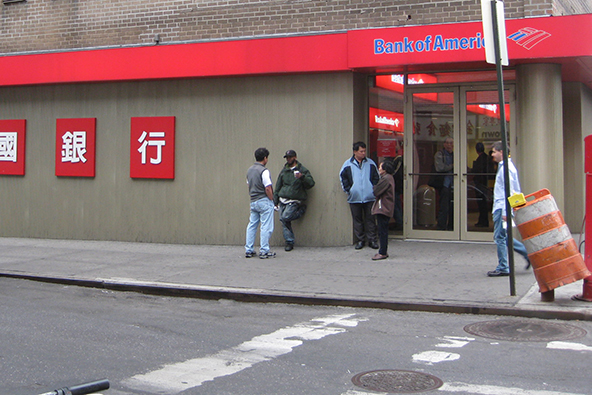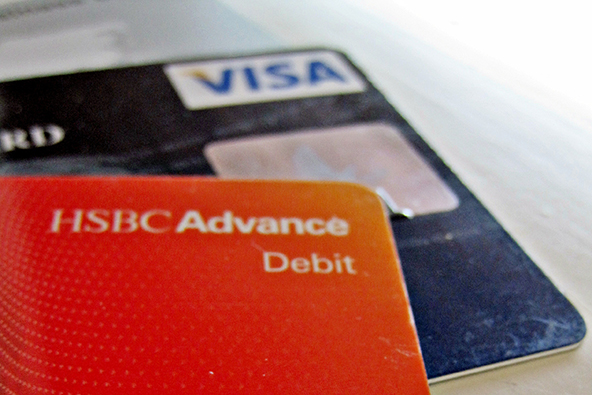The Cost of Regulation: Free Checking Gone, Bank Fees Up

Sen. Durbin is again going after Bank of America over a proposed fee. This time the senator’s fury is provoked by a checking account fee the bank is currently testing in three states. You may remember that back in October of last year the senator wrote a letter to BofA’s CEO Brian Moynihan, in which he demanded that the bank scrap its plan to charge a $5 debit card fee. The ill-fated fee was eventually abandoned, but, as we warned repeatedly on this blog, that was not going to be the end of the story and the banks were going to find ways to recoup the losses they suffered as a consequence of the Durbin Amendment and other regulations. Well, now we have proof that this is happening.
Javelin Strategy & Research, a consultancy, has just released a report showing that banking is now costing consumers significantly more than it did a decade ago. Considering that, as the report also shows, the cost to banks to maintain checking accounts has also risen dramatically for the period, this news should not be surprising or indeed, infuriating. And I don’t think we’ve seen the last of it.
Basic Checking Accounts Cost up 26% in Last Decade
That is the report’s headline number. Moreover, we learn that over the past five years alone, the most common components of the checking account fees — monthly account fees, in-network ATM fees, and out-of-network ATM fees — have increased by more than 20 percent.
Additionally, the average checking account cost to consumers rises with the increase of the banks’ size. For example, the largest banks charge nearly three times as much as the community banks ($5.88 vs. $2) and mid-sized banks charge less than two-thirds of the rate of their larger competitors. Only two of the large banks in Javelin’s sample are still offering free basic checking.
And here is why checking accounts are becoming more expensive. The average annual cost to financial institutions to maintain a checking account can be as high as close to $400 per account.
Javelin’s report provides some other interesting statistics as well. For example, we learn that less than 10 percent of consumers incur overdraft charges on a monthly basis, but three percent make 30 overdraft charges a year or more. And at an average overdraft penalty of $30 a pop, these fees can add up quite quickly.
Where Do We Go from Here?
Well, Sen. Durbin, for one, knows exactly what needs to be done: the banks should suck it up and accept the status quo, charge no new fees and keep existing ones at current levels or better yet, reduce them. Here is what he had to say in a statement:
Four months to the day after Bank of America rolled back plans to squeeze their customers instead of serving them, they are at it again. This brazen return to new monthly fees is a challenge that cannot go unanswered.
Accused of being largely responsible, through his eponymous amendment, for much of the fee increases, he is unapologetic. In his letter to BofA’s Moynihan, he told him that:
Under the Fed’s rule you will be allowed to profit handsomely by collecting around 24 cents per transaction. Your decision to charge a new monthly debit fee is an overt attempt to make even more profit off the backs of your customers.
The fact of the matter is that the capping of the debit interchange fees is costing Bank of America $2 billion dollars in annual revenue and the situation is similar at the other big banks. As we’ve written before, no business can or should be expected to quietly accept a huge fall in revenues and make no attempts to offset its losses. And so banking will keep becoming more expensive.
The Takeaway
While I never expected Sen. Durbin to own up to his responsibility for the rising cost of banking, predictable as it was, I would have expected him to be equally tough on the big-box retailers as he is on the big banks. After all, his amendment was enacted with the expressed intention of passing the retailers’ savings from the lower interchange fees on to consumers. Predictably, that never happened, but I am yet to hear the senator say anything about it.
And this is the most infuriating part of the story. The Durbin Amendment (which by the way does not apply to smaller banks) instituted a transfer of revenue from one industry (banking) to another (retail). It was always clear that consumers would gain nothing from the exchange, but would suffer from its side effects. And so it happened.
Image credit: Wikimedia Commons.


